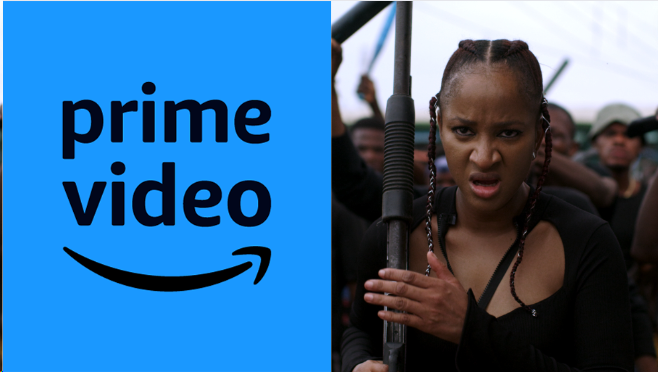Amazon Prime Video is significantly cutting budgets for African and Middle Eastern content as it shifts its international focus toward European originals.
The restructuring has triggered staff layoffs in Sub-Saharan Africa and the MENA region according to a statement as seen on Deadline.
Existing commitments for MENA region shows are unaffected, but new local productions in Sub-Saharan Africa, the Middle East, and North Africa may be halted.
The reorganization involves dividing Europe into two clusters, prioritizing “emerging” territories, and reducing funding for African and MENA regions. Prime Video’s VP & GM for EMEA, Barry Furlong, outlined these changes in an internal memo, emphasizing a resource “rebalance” and establishing two European clusters.
What we know
Staff in Sub-Saharan Africa and the Middle East & North Africa (MENA) regions have reportedly been notified about potential role eliminations, with an ongoing consultation period.
Gideon Khobane, Director of Prime Video Africa, is among those said to be affected.
However, individuals such as Ned Mitchell, Head of Originals for Africa and the Middle East, and Ayanna Ionian, Director of Content Acquisition and Head of WW Major Studio Licensing Strategy, are believed to be unaffected. Ionian, based in LA, manages acquisitions in the U.S., international territories, and Africa.
In this restructuring, regional reporting from MENA is now under the purview of Prime Video’s APAC leadership, led by Gaurav Gandhi.
Also, in light of the latest developments, uncertainties loom for production companies like Jade Osiberu’s Greoh Studios, which secured a three-year deal with Amazon Prime Video.
This exclusive arrangement aimed to create and develop TV shows and movies for Prime Video. The status of this deal remains unclear due to the recent restructuring.
Similarly, companies like Inkblot, having entered a multi-year deal with Amazon Prime Video, face an uncertain future.
Notably, this deal marked a significant milestone as the first licensing agreement between the streaming giant and an African production company.
The agreement entailed Amazon securing exclusive, worldwide rights for Inkblot’s releases post-theatrical runs.
These releases included Inkblot’s popular titles like “The Set Up 2,” “Moms at War 2,” and “New Money 3,” along with upcoming productions like “Charge and Bail,” “Superstar,” and “The Blood Covenant.”
What you should know
Since its entry into Africa in 2016, Amazon Prime Video, the third-largest video streaming platform on the continent, has undergone significant developments. Initially lacking local-language interfaces and original content, the service adapted to the African audience’s preferences.
To fortify its presence, Prime Video launched localized plans in South Africa and Nigeria, aiming to tap into emerging markets.
- The platform committed to investing in local production, introducing slates of localized originals, and offering discounted Amazon Prime memberships.
- Notable films like “Breath of Life” and Jade Osiberu’s “Gangs of Lagos” achieved critical acclaim and commercial success, showcasing Prime Video’s impact on the African streaming landscape. Despite these successes, recent restructuring decisions indicate a shift in priorities, with a focus on European content and potential layoffs in Africa and the Middle East.
Why Amazon may be pulling back from MENA regions
Amazon Prime Video scaling back its operations in Africa and the Middle East raises questions amidst the projected surge in the African streaming market. Although there were projections of a threefold increase in streaming subscribers in Africa by 2025, Amazon’s retreat is perplexing.
- One potential explanation lies in the limited streaming penetration across Africa. A significant portion of the population lacks access to reliable internet and the necessary devices for streaming.
- Moreover, the dominance of Netflix and Showmax as leading streaming platforms in Africa poses a formidable challenge for Amazon to establish its foothold.
- For instance, Nairametrics reported that Netflix is strategically poised to claim a substantial share of the African streaming on-demand video market, with projections indicating a commanding 41.9% by 2029.
- Regardless of the motivations, Amazon’s decision deals a significant blow to local creative industries. The company’s prior investments played a crucial role in elevating the production of high-quality African content. With Amazon’s departure, the future of these productions hangs in uncertainty.
- Last year, 2023 the global streaming service Prime Video increased its investment in Nigeria by announcing two Local Amazon Originals for Nigerian customers, Gangs of Lagos and LOL: Last One Laughing Naija.
























